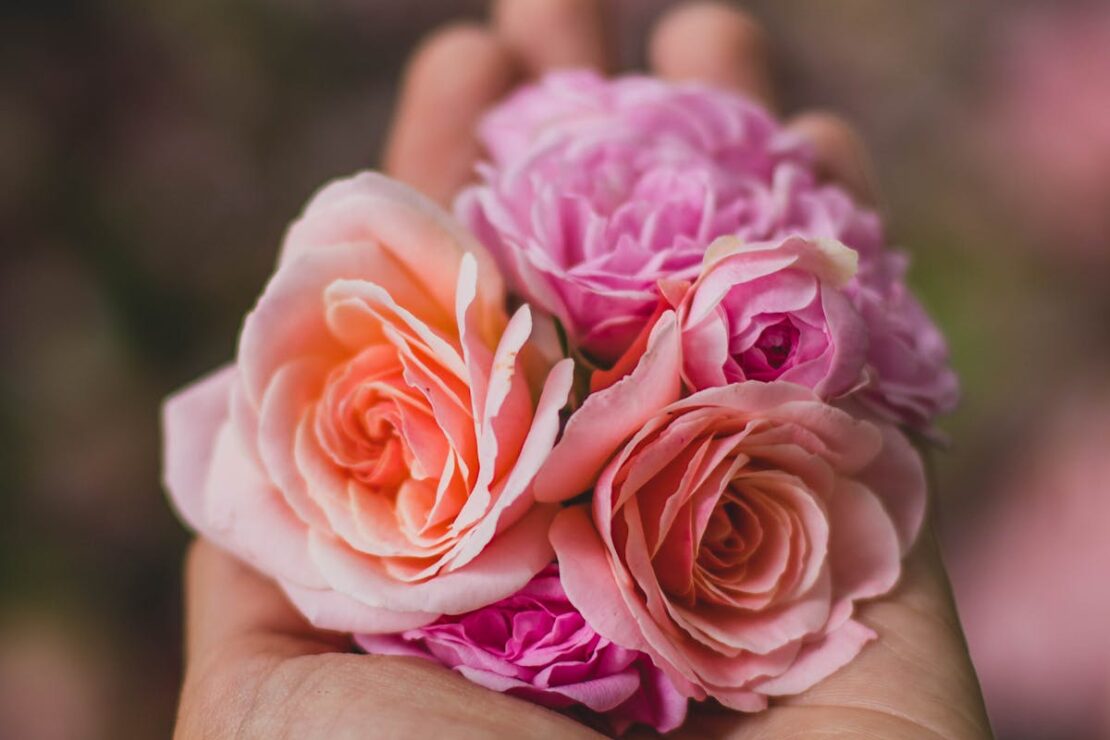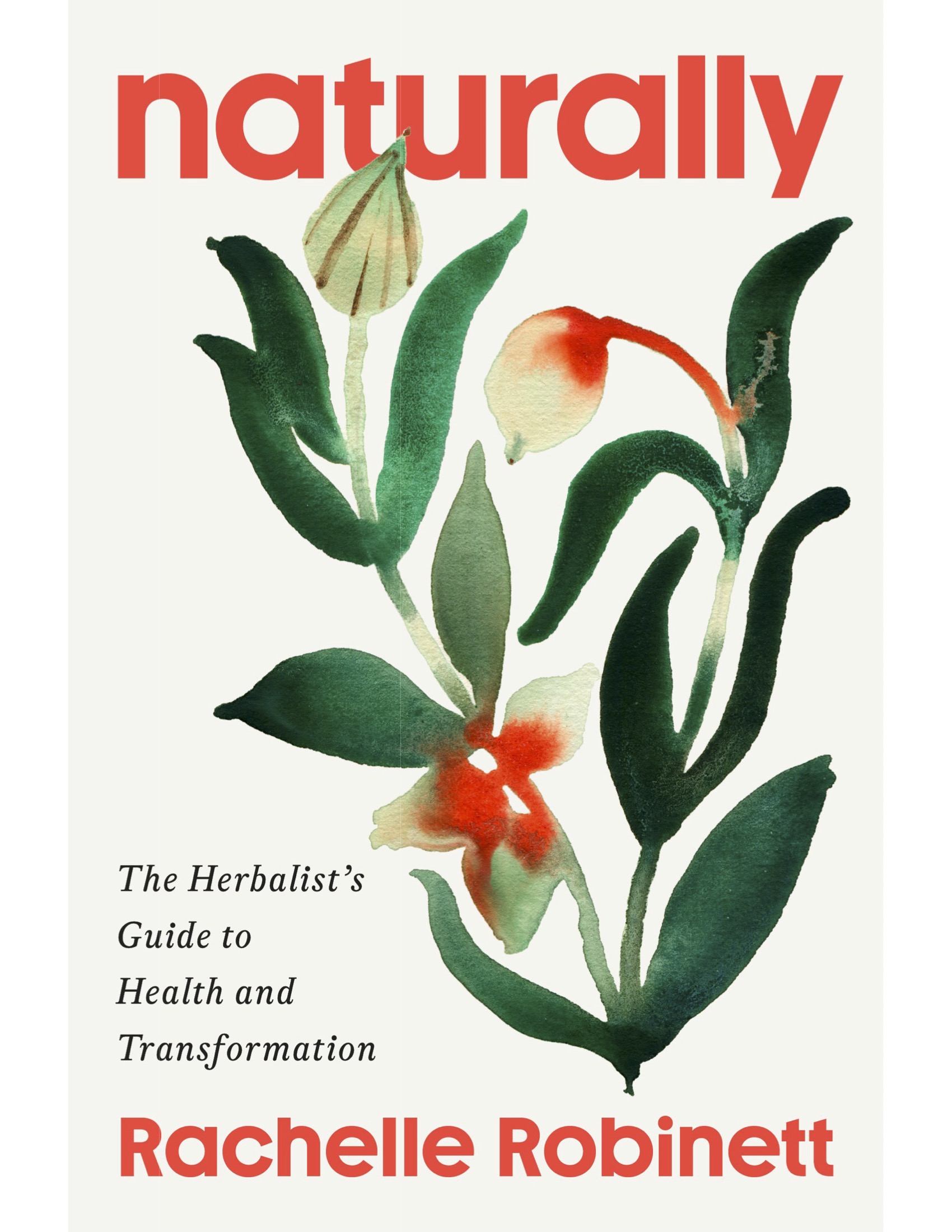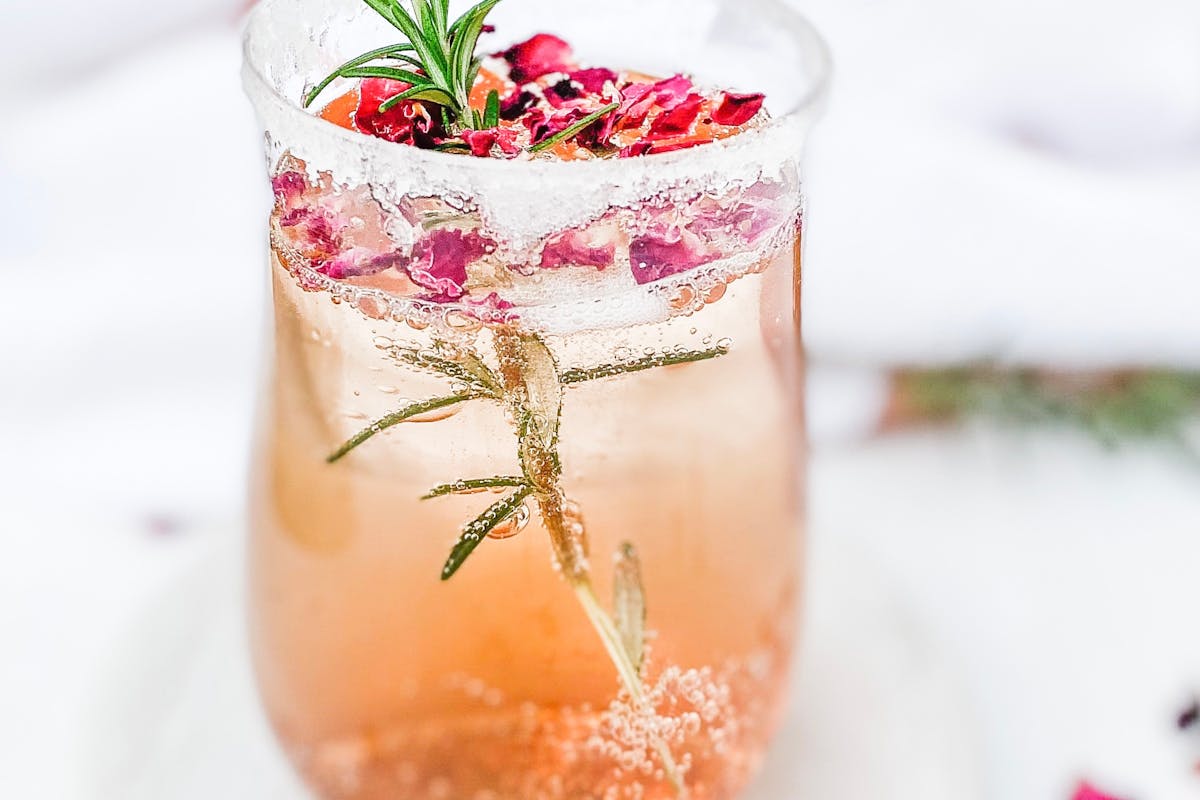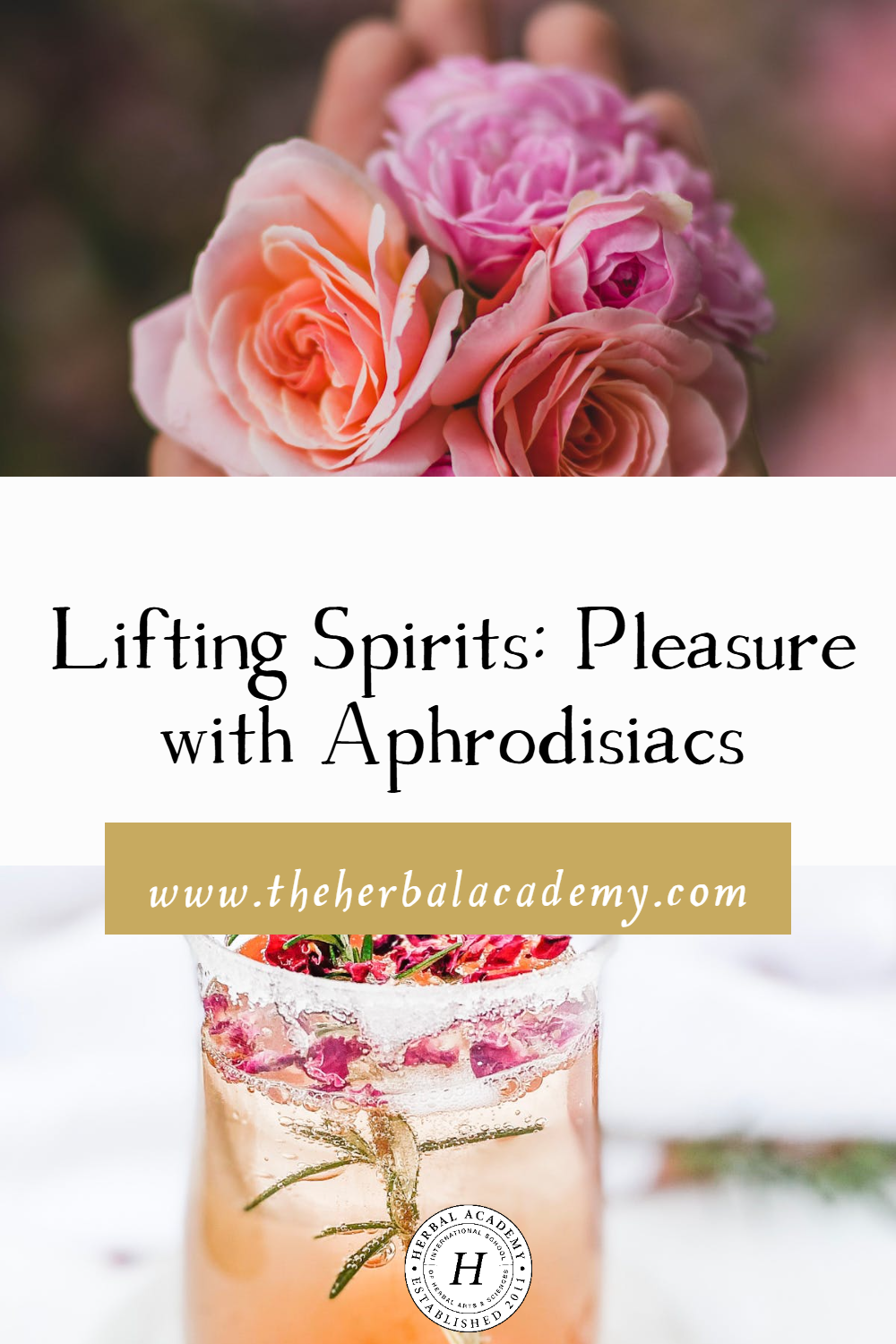
Lifting Spirits: Pleasure With Aphrodisiacs
Are you curious to discover how herbs can support you in leaning into full-bodied enjoyment? In Naturally, clinical herbalist and author Rachelle Robinett explores this topic and offers an accessible, beginner-friendly approach to herbalism, walking you through science-backed guidance for using herbs, including aphrodisiacs, how to work with a variety of supportive herbal preparations, and tried-and-true lifestyle and diet considerations to reclaim your health.
Explore the topic of aphrodisiacs, pleasure, and indulgence in the excerpt from the book that follows, then, join Rachelle in the video below as she shares how herbs like damiana (Turnera diffusa), maca (Lepidium meyenii), and cacao (Theobroma cacao) support pleasure, connection, and a deeper relationship with the body.
Hop on over to The Herbarium to find the full book excerpt and the full length video from Rachelle that explores more of her favorite herbal aphrodisiacs, the role herbs with antidepressant action can play in supporting emotional balance, as well as ideas for herbal alternatives to alcohol that offer relaxation, connection, and celebration without the hangover!
The following is excerpted from NATURALLY by Rachelle Robinett, RH(AHG), published by Penguin Life, an imprint of Penguin Publishing Group, a division of Penguin Random House, LLC. Copyright © 2025 by Rachelle Robinett.

From herbal alternatives to alcohol, stimulants for obvious reasons, intoxicating relaxants, mind-opening entheogens, plant-based social lubricants, even empathy-enhancing empathogens, and, of course, aphrodisiacs for potentiating desire, the use of plants for lifting spirits and shared experiences of imbibing has always been globally commonplace.
Today, our fixes for fun have broadened from regional herbs—and all the ancestral rituals associated with their use—to the industry-driven and society-encouraged (and not coincidentally addictive) caffeine, alcohol, nicotine, and designer food-drugs. Dopamine-inducing screens make the cut too.
Despite some of the obvious problems with these substances, there’s reason to be optimistic. A surge of interest in herbal alternatives to alcohol from younger generations is driving demand for functional, natural ingredients in daily drinking habits. About 42 percent of millennials use alcohol regularly, versus only 21 percent of Gen Z—and nearly half of those who do are trying to reduce their alcohol consumption.
Culture is shifting, driven by more health-conscious shoppers, and the natural world contains more beneficial options than we may ever know.
Overall, these ingredients and this movement could return us to our roots of living in integration with herbalism—with an herbalist in every home, some say.
Pleasure Seeking Is a Survival Mechanism
We organisms are the result of evolutionary competition, where gene persistence and propagation are primary—and in the race of life, rewards serve to increase our evolutionary fitness.
Our systems motivate us toward what will ensure our survival—or, at least, they used to. While food and drink are obviously necessary for survival, they can also be deeply pleasurable. And especially in modern Western societies, they’re central to much of the overconsumption that can degrade our health.
With clients and in my teaching broadly, I always strove to guide people to find the pleasure in healthful consumption choices. The lifestyle changes that last will do so in large part because we enjoy them, or their rewards—or, ideally, both.
Also both essential and enjoyable (there’s a reason these two features are intertwined: survival) is novelty. Novelty—the encounter of anything new or different—precedes attention, emotion, memory, and behavior. It’s evolutionarily necessary, driving the exploration that allowed us to discover a wider array of rewards—aka food and drink, tools or shelter—that further enhanced our species’ chance for longevity.
That said, while novelty may fulfill our desires for stimulation, there is a difference between wanting and needing. While we may want novelty for pleasure or excitement, our needs are typically associated with fulfilling basic requirements for survival, well-being, or functionality.
As we’ll see, reward, novelty, and pleasure are all central to how we design our own personal happiest hours. And there is a nearly endless degree of novelty in herbalism, should we choose to continue to explore or experiment with the thousands—and counting—of medicinal plants in the world.
But the distinction between needing and wanting is critically important to consider, both physiologically and in the work of herbalism; it informs how we can most healthfully treat ourselves to novelty and pleasure.
Unsurprisingly, understanding why we want what we want introduces the powerful element of awareness that can allow us to realign desires with our highest priorities. This is possible to do, and it then affords us both the satisfaction of reward and pleasure in partaking—in other words, to have our cake and eat it too.
Taboos, Desires, and Herbal Indulgence
Of course, novelty sometimes intersects with taboos—things that are socially, culturally, or personally forbidden or stigmatized—which imbues certain indulgences with an additional allure.
This can create a desire for novelty that conflicts with certain norms—or even other desires, like wanting the pleasurable effects of alcohol while also wanting to support health.
With herbalism, I have always sought to find the desires that align with individuals’ values, which then allows us to cocreate a plan that includes both sensual indulgence and well-being.
Health should be pleasurable.
While taboos can create desire, there is a special sort of satisfaction that’s both enjoyable and guilt-free. I don’t want to claim that it’s possible to pursue only this form all of the time, but I believe it’s a goal we all generally share. Pleasure is, in fact, the enjoyment or anticipation of what we perceive as good or desirable. (We’ll explore the anticipatory and motivational points in chapter 8.) Herein, we can see how relative and context-dependent feeling good is.
In order to herbally concoct pleasure, it’s worth taking a moment to consider, specifically, what states are most enjoyable for us personally. For example: stimulation versus sedation, cognitive changes versus body-based shifts, and the contexts we most want to be affected in.
After all, pleasure is a state, and creatures—humans and animals alike—are highly drawn to state changes.
We are motivated by a need for a variety of experiences or, as it’s sometimes called, altered states of consciousness, which most of this book is actually about. Throughout history, in the kingdoms of all living beings, we find herbs in the hands—and mouths and bloodstreams—of those pursuing that compelling state of change.

Herbal Lambrusco Recipe
(Makes 4–5 servings)
2 tablespoons rose petals To serve:
2 tablespoons hibiscus
1 tablespoon goji berries
24 ounces boiled and slightly cooled water
Sparkling water
Vanilla extract (optional)
Add ice to each serving glass. Pour in ½ to ¾ cup rose-hibiscus elixir, and top with about ¼ cup sparkling water. Add a few drops of vanilla extract, if using.
Join Rachelle in the video below as she shares more about how herbal aphrodisiacs work in the body to open us to receiving pleasure as well as insights on three of her most loved herbal aphrodisiacs.
SEE THE FULL LENGTH VIDEO IN THE HERBARIUM!
Interested in learning more about the importance of aphrodisiacs for pleasure, herbs like to support for emotional balance, and herbal alternatives to alcohol that support connection, relaxation, and celebration? Members of The Herbarium can join herbalist Rachelle Robinett as she delves into these topics in more depth! You’ll find this enlightening video in The Herbarium, along with the excerpt of Naturally.
Interested but not yet a member of The Herbarium? Get access today with quarterly or annual membership!
The Herbarium is an ever-expanding, illuminating virtual collection of over 200 (and counting!) searchable monographs, unique intensive short courses on focused topics, and numerous informative articles, videos, ebooks, podcasts, and helpful downloadable resources. The Herbarium is crafted for herbalists to help you learn and grow in your herbalism journey!
Learn more and sign up for The Herbarium here.
Find Naturally by Rachelle Robinette via Penguin Random House or Amazon.


Rachelle Robinett, RH(AHG), is a writer, herbalist, educator, and life-long naturalist. She’s the founder of multidisciplinary companies dedicated to the art and science of natural wellness. Combining traditional medicine and current health insights with an understanding of individual behavior modification, Rachelle has provided accessible plant-based healing to countless people. She’s based in New York and Costa Rica. Connect with Rachelle at her website, https://www.rachellerobinett.com/







